Inputs from Asia-Pacific region to the UNESCO Recommendation on Open Science—On Tuesday, 15 September 2020, UNESCO Jakarta, as the Regional Science Bureau for Asia and the Pacific, in collaboration with the International Science, Technology and Innovation Centre for South-South Cooperation (ISTIC), Malaysia, organized the online regional consultation on “Inputs from Asia-Pacific region to the UNESCO Recommendation on Open Science”.
This event is part of a series of regional consultations aimed at building a global consensus on Open Science by gathering inputs from Asia and Pacific scientists, science funders, policymakers, innovators, publishers, and other concerned stakeholders on the UNESCO Recommendation on Open Science. More than 150 participants joined the online session through Zoom and UNESCO Jakarta Facebook livestream.
The Director of UNESCO Jakarta, Prof. Shahbaz Khan, and Chairperson of ISTIC Governing Board, Prof. Datuk Dr Halimaton Hamdan, delivered their remarks to welcome the participants. It was followed by a presentation by UNESCO Jakarta on the summary results of the global survey on Open Science conducted on March-June 2020 in the region, presented by Prof. Shahbaz Khan. From UNESCO Paris, the Director of Science Policy and Capacity Building Division, Dr Peggy Oti-Boateng, shared the update on the draft recommendation and key elements on Open Science.
Representatives from different groups of stakeholders presented their perspectives on Open Science: Dr Ma Juncai, Director of National Microbiology Data Center, Institute of Microbiology, Chinese Academy of Sciences, P. R. China, introduced the Open Science national approaches in China and Global Open Data Science Activates in Microbiology field; Mr Kazuhiro Hayashi, Senior Research Fellow of National Institute of Science and Technology Policy (NISTEP), Japan, presented Open Science activities in government entities and academic entities in Japan; Prof. Noorsaadah Abd. Rahman, Deputy Vice-Chancellor (Research and Innovation) of University Malaya, Malaysia, introduced the Malaysian Open Science Platform (MOSP), including its brief history, objective and ongoing initiative; and Dr Eunjung Shin, Research Fellow of Science and Technology Policy Institute (STEPI), Republic of Korea, introduced five Korean Open Science initiatives, and presented key opportunities, remaining challenges and suggestions for the future.
Prof. Dr Zabta Khan Shinwari, Vice-Chair of COMEST (Commission on the Ethics of Scientific Knowledge and Technology) and Council member of Pakistan Academy of Science talked about the integration of social science with the natural science in Open Science, he emphasized the role of social science in global problems, the understanding of social factors and citizen science, and called for global collaboration and Open Knowledge Network. Prof. Malzan Othman, Director of International Science Council-Regional Office for Asia and the Pacific (ISC-ROAP), presented how ISC has secured the political support of APEC with the endorsement by APEC of a statement on Open Science and how Open Science can contribute to the economic growth of the region and talked about the existing regional science projects and programmes, the ISC Data and information initiatives, the roadmap and the upcoming activities of Open Science in Asia Pacific region. Dr Liu Chang, Director of Division of International Cooperation, International Knowledge Centre for Engineering Sciences and Technology (IKCEST), P. R. China, introduced their Open Science platform, including the objectives, the specialized fields, the highlights of Knowledge Service, and the activities on Open Science, especially Covid-19 prevention and control related.
Questions from the panellist and the audience were raised around the core values of Open Science such as inclusiveness, gender equality, and ethics, the need for national frameworks and platforms, the top-down and bottom-up combined policy making process, and legal issues, benefits and informal practices of Open Science amongst others. The discussion is closed with final comments from the region and experts focusing among others on steps to enable Open Science implementation by how to establish a national platform in terms of infrastructure and human resources, and how to make them link efficiently with regional and global platform, and ensure a change of culture about data, process, and infrastructures.
The consultation was concluded by the closing remarks from Prof. Datuk Dr Halimaton Hamdan (ISTIC) and Dr Shamila Nair-Bedouelle, UNESCO Assistant Director-General for Natural Sciences, who called for collaboration among stakeholders, including scientists, policy makers and publishers, emphasized the valorization of informal science and indigenous knowledge in the global south, and ensured the benefit for all in the way forward for Asia and the Pacific to the UNESCO Recommendation on Open Science.
The UNESCO Recommendation on Open Science is contributing to the Sustainable Development Goal 17: Strengthen the means of implementation and revitalize the global partnership for sustainable development, especially Targets 17.6 and 17.8.
For further information, please refer to the meeting materials, and contact the Programme Specialists for Science Policy and Capacity Building of UNESCO Office, Jakarta, Dr Ai Sugiura (a.sugiura@unesco.org).








 User Center
User Center My Training Class
My Training Class Feedback
Feedback












Comments
Something to say?
Login or Sign up for free